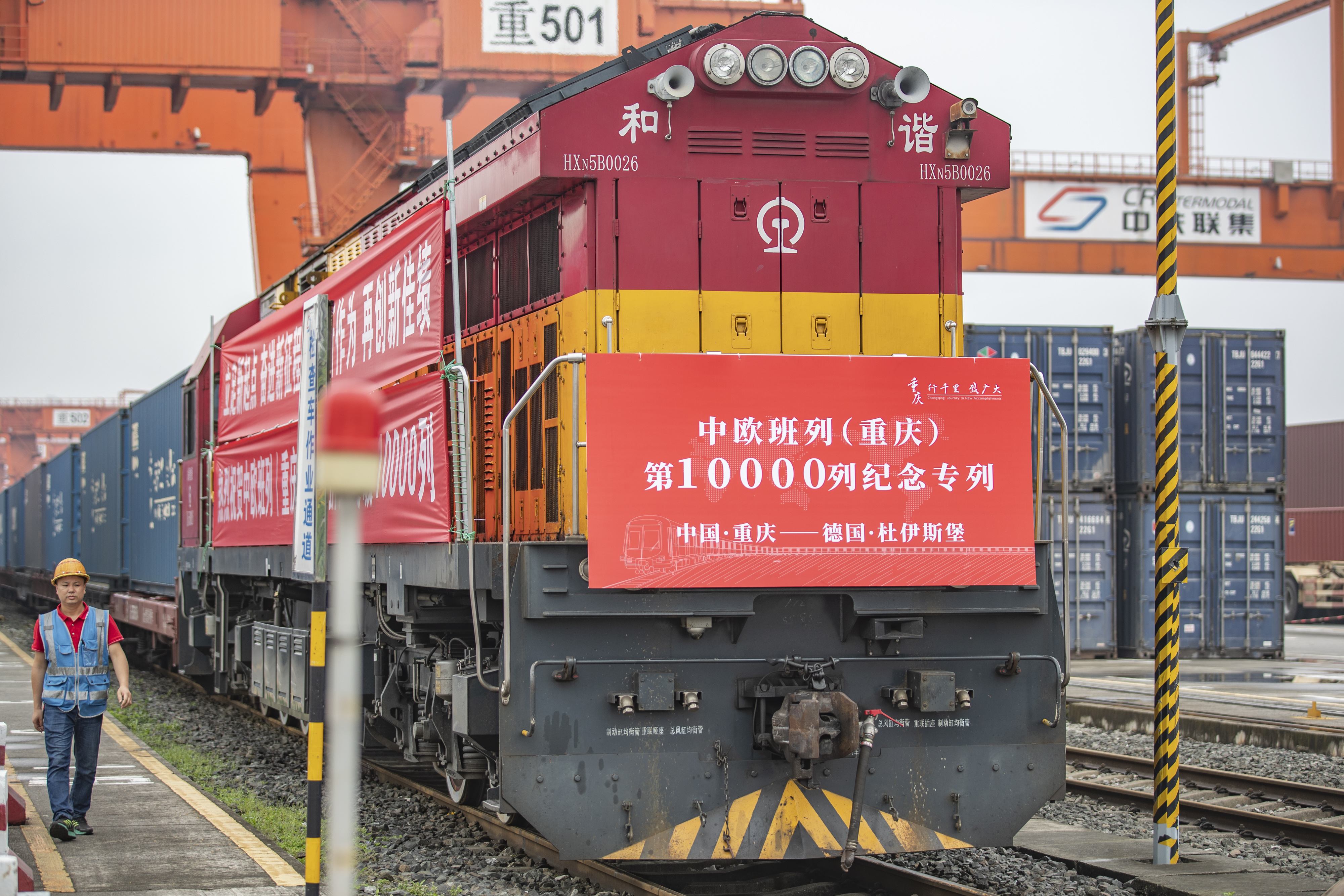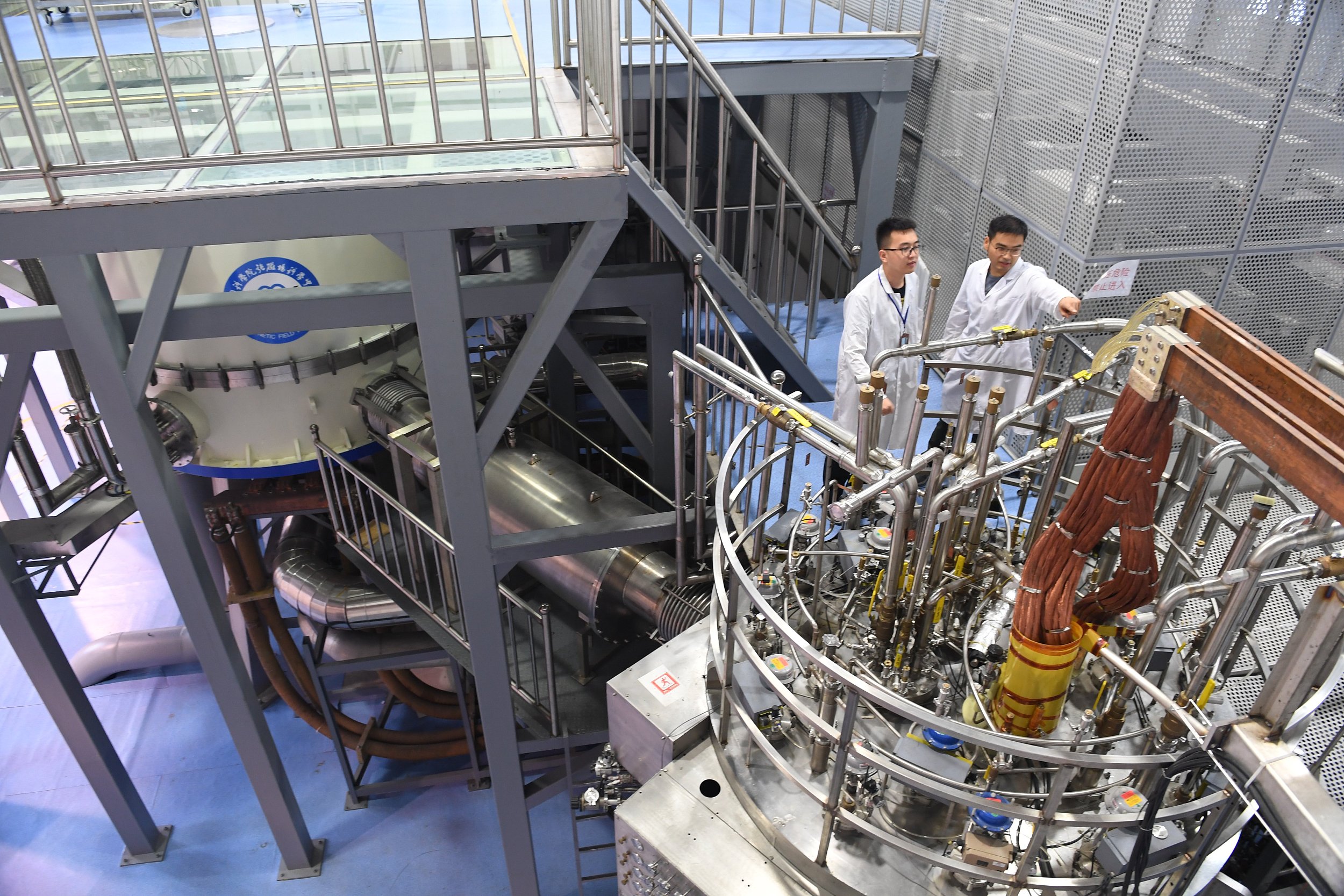China-EU Cooperation Continues Desipite Uncertainty of Global Economy
The 10,000th China-Europe freight train (Chongqing) at Tuanjiecun Railway Station in southwest China's Chongqing. (PHOTO: XINHUA)
Edited by Staff Reporters
Loaded with 100 TEUs of electronics, mechanical parts, and groceries, the 10,000th China-Europe freight train from southwest China's Chongqing headed west on June 23 and arrived in Germany's Duisburg on July 11.
It is the first China-Europe freight train route, which began operations in 2011. The rail route connects 59 railway stations and 29 ports across the country, linking about 100 Asian and European cities
The China-Europe freight train initiative has kept growing for years. From 2016 to 2021, the annual number of China-Europe freight trains increased from 1,702 to 15,183, an average annual growth rate of 55 percent. And the value of goods transported by the cargo service skyrocketed from 8 billion USD to 74.9 billion USD during the same period.
"After years of development, during which the cargo service has withstood the test of COVID-19 and the changing international situation, the value and economic role of China-Europe freight trains have been widely recognized by countries and regions along the rail routes," said Li Dawei, a researcher with the Institute of International Economic Research at the Chinese Academy of Macroeconomic Research.
On July 19, China and EU held the 9th High-Level Economic and Trade Dialogue, to discuss topics on the macroeconomy, industrial and supply chains, bilateral trade and investment, and financial cooperation.
The two sides agreed to jointly promote practical cooperation in the field of economy and trade, and to deal with the challenges of the global economy.
"EU and China are key trading partners," said Valdis Dombrovskis, EU's Executive Vice-President and Commissioner for Trade, noting that, "The importance of our economies comes with a responsibility to shape joint responses to global economic and trade challenges, such as disruptions in supply chains, global food insecurity, debt relief for the most vulnerable countries and reform of the World Trade Organization."
The dialogue, sending a positive signal, also marked a joint effort made by the two sides to revitalize the global economy.
Since the establishment of China-EU diplomatic relations in 1975, the two sides have maintained continued cooperation and stable development through challenging times.
In the face of the pandemic, China-EU economic and trade cooperation has bucked the trend and showed strong resilience and surging vitality. As the end of June, the China-Europe freight train had transported a total of 14.17 million pieces of pandemic prevention materials, totaling 109,000 tons.
According to the latest data from the Ministry of Commerce of China, the bilateral trade volume has reached 420.6 billion USD in the first half of this year, a year-on-year increase of 8.4 percent.
Although there are critics claiming that Europe and China relation is at a crossroads and they should decouple, many European companies do not think so. The European Union Chamber of Commerce in China, in partnership with the Mercator Institute for China Studies, has published a survey, indicating that 75 percent of the surveyed companies would increase their innovative R&D investment in China.
As two of three the world's largest economies, China and EU should continuously shoulder responsibilities and strengthen economic and trade cooperation in various fields to safeguard multilateralism, cope with the impact of the pandemic on the global supply chain, and bring stability and certainty to a changing world.



